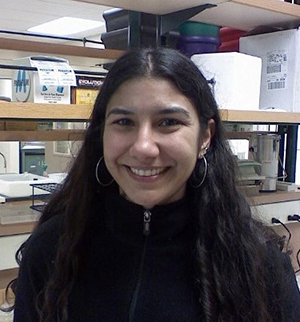Campus News
Biologist Needhi Bhalla awarded ASCB Prize for Excellence in Inclusivity
Bhalla was recognized for her research endeavors and high-impact diversity, equity, and inclusivity actions over the years.

The American Society for Cell Biology (ASCB) has awarded the 2022 ASCB Prize for Excellence in Inclusivity to Needhi Bhalla, professor of molecular, cell, and developmental (MCD) biology at UC Santa Cruz.
ASCB’s Prize for Excellence in Inclusivity recognizes a scientist with a strong track record of cell biology research who has demonstrated the importance of inclusion and diversity in science through mentoring, cultural change, outreach, or community service. The award is made possible by a Howard Hughes Medical Institute grant.
ASCB honored Bhalla on Saturday, December 3, before the keynote of the Cell Bio 2022 meeting in Washington, D.C. She also will write an essay to be published in Molecular Biology of the Cell (MBoC) and will receive $5,000 to use as she chooses.
Susan Strome, distinguished professor of MCD biology at UCSC, strongly recommended Bhalla for her research endeavors and high-impact diversity, equity, and inclusivity actions over the years. For example, Bhalla outlined an actionable plan in her 2019 MBoC Perspective, “Strategies to Improve Equity in Faculty Hiring.” She created an annotated bibliography on best practices for advancing faculty diversity at UCSC. She serves on the ASCB Council and advocates for including speakers from underrepresented groups. Bhalla has also created equity and inclusivity professional development opportunities at the Gordon Research Conferences.
“(Needhi) is a leader in advocating for appropriate representation of underrepresented groups, and her voice is recognized and sought on the national stage,” Strome wrote in her letter of support. “She has been invited to give numerous ‘Diversity Outreach’ talks over the last few years and routinely includes discussion of (diversity, equity, and inclusion) issues in her research seminars. She maintains a library of equity-focused books and web links to share with others.”
Social media, however, may be one of Bhalla’s most prolific and impactful outreach platforms. Soni Lacefield, professor of biology at Indiana University, remarked in her recommendation letter: “(Needhi) uses Twitter to reach her 13,800 followers to provoke them into thinking about issues of equity and diversity. She points out issues of inequity and how they have hurt scientific progress. She comments on the equity and diversity literature. She calls out racist, sexist, and ableist behaviors. And, she gives concrete ideas on how to implement change. Personally, I have learned more about issues of equity and diversity through following her account than through any other means.”
A New York native, Bhalla earned a bachelor’s degree from Columbia College. She obtained her doctorate at UC San Francisco, where she trained with Andrew Murray and studied how mitotic chromosomes segregate in budding yeast. During her postdoctoral training with Abby Dernburg at UC Berkeley, Bhalla identified a meiotic checkpoint that monitors whether chromosomes have synapsed correctly.
Currently, the Bhalla lab combines genetic and biochemical approaches with high-resolution microscopy and cytological techniques in the nematode worm Caenorhabditis elegans to understand better how chromosomes are partitioned correctly during sexual reproduction (meiosis) and development (mitosis). Having an incorrect number of chromosomes, also called aneuploidy, can lead to cancer, congenital disabilities, miscarriages, and infertility, underscoring the importance of this question to human health, Bhalla explained.
“I have integrated equity into all aspects of my work at my university and in my scientific field, including research, teaching, and service,” Bhalla added. “I consider this work essential to improve the quality and application of research science.”
Foundational to all her research endeavors, Bhalla says, is her deep commitment to “promoting equity in academic science at the level of both trainees and faculty.”
“I’m excited and humbled to be recognized by ASCB and my cell biology colleagues for this important work,” Bhalla said. “Making science more equitable is essential to improve the quality and application of research science, and I hope this recognition encourages others to consider taking on this work too.”